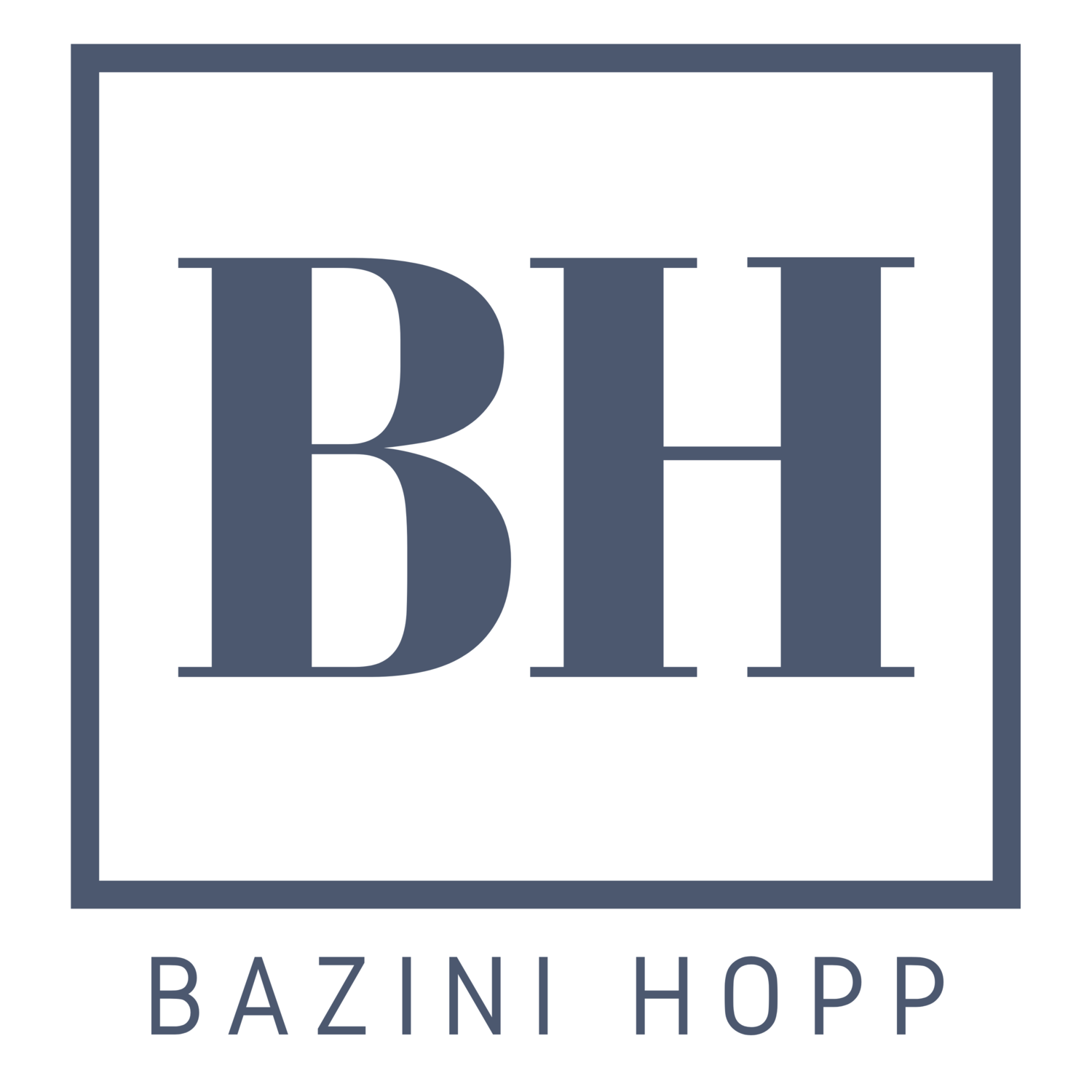Original Content Creation FUJIFILM instax June-July 2018
U.S. Ranks Low Among World's Most Reputable Countries
By Megan Trimble, Associate Editor, Social Media
| Country | Reputable Rank | Overall Best Countries Rank |
|---|---|---|
| Sweden | 1 | 6 |
| Finland | 2 | 14 |
| Switzerland | 3 | 1 |
| Norway | 4 | 12 |
| New Zealand | 5 | 13 |
| Australia | 6 | 7 |
| Canada | 7 | 2 |
| Japan | 8 | 5 |
| Denmark | 9 | 11 |
| Netherlands | 10 | 10 |
Walmart's Image Takes a Dive Despite Effort to Alter Narrative
Walmart's Image Takes a Dive Despite Effort to Alter NarrativeBy Matthew BoyleWalmart has boosted wages, set ambitious sustainability goals and is pledging to promote more women into senior leadership -- but Americans are still souring on the iconic brand.While the retailer’s sales have improved thanks to less-cluttered aisles and a push into e-commerce, its image is lagging. After a recent peak in 2016, when the company saidit would invest billions in stores and online to win back customers, public perception has declined for two straight years, according to the Reputation Institute, a research and advisory firm. “Doing the right thing is one thing,” said Stephen Hahn-Griffiths, chief reputation officer at the institute, referring to Walmart’s worsening numbers. “Getting the credit for it is another.”The group’s latest survey on Walmart was conducted before the news that migrant children are being housed in a Texas detention center that was once a Walmart. The retailer has responded to calls for a boycott on social media, saying it had no idea the former store -- which it sold in 2016 -- would be used for “such a disturbing purpose.” The location was purchased by a developer in a deal financed by Southwest Key Programs Inc., a nonprofit that operates about a dozen facilities in Texas.Hahn-Griffiths said there’s no evidence yet that the detention center has hurt Walmart’s reputation. Another corporate image tracker, the Harris Poll Reputation Quotient, also shows Walmart’s reputation peaking in 2016.
“Doing the right thing is one thing,” said Stephen Hahn-Griffiths, chief reputation officer at the institute, referring to Walmart’s worsening numbers. “Getting the credit for it is another.”The group’s latest survey on Walmart was conducted before the news that migrant children are being housed in a Texas detention center that was once a Walmart. The retailer has responded to calls for a boycott on social media, saying it had no idea the former store -- which it sold in 2016 -- would be used for “such a disturbing purpose.” The location was purchased by a developer in a deal financed by Southwest Key Programs Inc., a nonprofit that operates about a dozen facilities in Texas.Hahn-Griffiths said there’s no evidence yet that the detention center has hurt Walmart’s reputation. Another corporate image tracker, the Harris Poll Reputation Quotient, also shows Walmart’s reputation peaking in 2016.
Walmart Chief Executive Officer Doug McMillon has repeatedly said that his goal is for Walmart to “be the most trusted retailer.” The company’s own internal tracking of its reputation shows improvements over the last couple of years with customers and the public overall, according to spokesman Randy Hargrove.But the company is still dealing with negative sentiment stemming from lawsuits surrounding treatment of pregnant workers, a long-running bribery investigation in its overseas operations and efforts to prevent labor unions from organizing its U.S. stores. It’s taken some steps to address those, such as allowing pregnant workers to do temporary lighter duty.“Walmart still has some prejudice to overcome,” Hahn-Griffiths said.
The most reputable country in the world is ...
Sweden, known for its generous social benefits and commitment to gender equality, is considered the most reputable country in the world, according to an annual ranking by Reputation Institute.
Sweden rose from third place in 2017 to first place this year, a move Prime Minister Stefan Löfven said signals that equality and freedom are key priorities for the Scandinavian country.
"I am convinced that this result stems from the fact that our social model creates not only growth but also freedom, equality and security," said Löfven in a statement. "More and more people understand that inequality is a major obstacle for economic development in the world."
Following Sweden this year are Finland, Switzerland, Norway, New Zealand, Australia, Canada, Japan, Denmark and the Netherlands to round out the top 10 most reputable countries.
The ranking released Thursday surveys more than 58,000 people in France, Germany, Italy, the United Kingdom, Japan, the United States, Canada and Russia on the 55 largest countries by gross domestic product. It examines ethics and perception of corruption, aesthetic-beauty and "feel-good" factor, according to Stephen Hahn-Griffiths, chief reputation officer at Reputation Institute.
The study also measures perceptions of the most progressive social and economic policies, according to Reputation Institute.
More: The best and worst countries for women
More: So, Sweden just opened a 'mansplaining' hotline
More: Why does gender parity remain elusive in corporate America?
Sweden's acceptance of hundreds of thousands of refugees was also a factor in the country's high score. Hahn-Griffiths also credited the Swedish Institute, a public agency that communicates Sweden's culture and encourages tourists to visit the country, for improving its score.
“The more you can integrate around a common theme, cultural values, around a common backstory on what your country stands for, the more effective the message, and ultimately the more powerfully that will be translated into your reputation,” Hahn-Griffiths said.
Finland moved from the seventh most reputable country to the second most reputable country this year, receiving a score of 81.6. Greece saw the largest reputation increase, jumping from 62.5 last year to 64.7 this year, making it the 22nd most reputable country in the world. This shift was motivated by providing an "appealing environment" to tourists and other visitors to the country, according to the rankings.
The United States earned a score of 56.4 in this year's reputation rankings as the 34th most reputable country. Though the U.S. had strong scores economically in fostering "successful brands" and being "technologically advanced," the U.S. lost points on "perceptions of ethics, effective government and safety," according to Reputation Institute.
This year's ranking shows an increase in the U.S.'s reputation around the world. Last year, the U.S. was the world's 38th most reputable, scoring a 54.7. However, the U.S.'s reputation among Americans has dropped 7 points since President Donald Trump's election in 2016.
A country's reputation has a significant impact on its tourism and trade revenue. For every one point increase in reputation, a country is likely to see a .9% increase in tourists per capita and a .3% increase in export rates, according to Reputation Institute.
The 10 least reputable countries in the rankings are Venezuela, Kazakhstan, Bangladesh, Colombia, Algeria, Saudi Arabia, Russia, Nigeria, Iran and Iraq. These countries scored lower on key elements of the survey such as having an ethical government, participating responsibly in the global community and offering an appealing lifestyle.
According to Hahn-Griffiths, today the survey data relies more on "intangibles," or perceptions of a country's political culture or ethics, than "tangibles," like GDP, to calculate a country's reputation ranking.
"What we used to call 'touchy-feely' things like the image of the company, the overall perception you have around what that company or country stands for have become disproportionately more important," Hahn-Griffiths said.
These are the most — and least — reputable drug companies in the US
By Charlotte HuDrug companies have been hit hard this year. Public opinion, trust and reputation of pharmaceutical companies appear to be eroding, according to a new analysis from the research consulting firm Reputation Institute.Pharma giants saw a 3.7% decline in reputation score from last year. There was also a significant decline in the public's perception of the transparency, openness and authenticity of drugmakers.The points are calculated from 2,608 individual ratings on seven areas: products and services, innovation, workplace, governance, citizenship, leadership, and financial performance. These contribute to companies' "RepTrak" score. Overall, of the 22 pharma companies ranked, Sanofi was number one and Pfizer was last.Here are the companies ranked from worst to best based on perception: http://www.businessinsider.com/pharmaceutical-company-reputation-rankings-2018-6?IR=T
Public opinion, trust and reputation of pharmaceutical companies appear to be eroding, according to a new analysis from the research consulting firm Reputation Institute.Pharma giants saw a 3.7% decline in reputation score from last year. There was also a significant decline in the public's perception of the transparency, openness and authenticity of drugmakers.The points are calculated from 2,608 individual ratings on seven areas: products and services, innovation, workplace, governance, citizenship, leadership, and financial performance. These contribute to companies' "RepTrak" score. Overall, of the 22 pharma companies ranked, Sanofi was number one and Pfizer was last.Here are the companies ranked from worst to best based on perception: http://www.businessinsider.com/pharmaceutical-company-reputation-rankings-2018-6?IR=T
Another poll finds dropoff in pharma consumer confidence
by

The latest survey to find a dip in pharma trust and reputation comes is Reputation Institute's annual RepTrak poll. (Alpha Stock Images)Another week, another dismal pharma trust and reputation poll. This time, the comes from the Reputation Institute, which found that pharma companies' national and global reputations are under stress, with a 3.7 point general decline in reputation score.Trust in pharma is even worse, with a 14% decline in consumers’ perception that drugmakers will do the right thing and a 13% drop in giving pharma the benefit of the doubt.
What Can Pharmaceutical Companies do to Feel Better About Reputation?
By Meghan BurkeThe pharma industry’s reputation is in decline. According to Reputation Institute’s (RI) most recent study, the reputation of pharma companies might get even worse before it gets any better. This year, RI conducted research on the reputation of the US pharma industry among the informed general public—that is, those who identified as somewhat or very familiar with the measured companies they were asked to evaluate. The study took place in January and February of 2018. It included 22 nominated companies and was comprised of a sample based on 2,608 individual ratings.What did the study reveal in the wake of a challenging 18 months for the healthcare industry and following recent increased scrutiny of pharma companies?There is a significant erosion of trust, fueled by a nation and pharma industry that’s under reputational duress.The decline in reputation of the pharma industry can be attributed to the erosion of underlying trust and a growing culture of corporate criticism. Versus the same period in 2017, the reputation of all companies among the US public dropped 3.7 points. This decline was at the same rate of decline as the US pharmaceutical industry, indicating a new era of growing scrutiny and skepticism of pharma companies. The resultant impact is a freefall in overall levels of support, with a 13% drop in trust and 14% decline in benefit of the doubt for pharma companies in the US.But what’s a pharma company to do to turn things around, increase trust, and ultimately enhance reputation?Here are nine prescriptive reputational insights for the pharma industry:
- Drive depth of understanding. Only 20% of prompted respondents were familiar with pharmaceutical companies and could proceed with RI’s study. With such low familiarity, the messaging pharmaceutical companies want to convey is ineffective because purpose goes unrecognized. Instead, public perception is controlled by other forces—including the media—when judgments are made about the industry. A first step to drive depth of understanding is increasing familiarity.
- Prioritize governance. This year, governance has moved up to the single most important driver of reputation for the pharmaceutical industry, surpassing both products/services and citizenship. And yet, pharma scores lowest on governance. If the pharmaceutical industry wants to see any reputational lift, it must focus on ethics—60% of respondents are unsure as to whether pharma companies exhibit good governance.
- Manage profit and purpose. The pharma industry is perceived as being profitable, showing strong prospects for growth and delivering financial results better than expected; it scores highest on these attributes. However, financial performance is what the public has the least concern for when evaluating reputation; it has the lowest impact on score. In contrast, the public values good governance—behaving ethically, openness and transparency, and fair business practices—with high importance. When combined, these attributes have the largest impact on pharma reputation. Yet, this is where they continue to score the lowest. When reaping the benefits of profit, the pharma industry must understand the value of managing its purpose.
- Tread carefully on pricing. The attribute, “offering products/services that are a good value for the money,” weighs heavily for pharma reputation, with a 6.5% impact on score—clearly it is an important factor to the public. Willingness to buy has dropped 8% since 2017, as the price of medication continues to outweigh perceived value.
- Celebrate your corporate brand. Purpose-driven pharma companies with enhanced brand strength have a higher reputation score than those without. Across the pharma industry, brand strength has decreased by 5.1 points during a time when being purposeful is more important than ever. Linking products to corporate brand is one way to enhance reputation.
- Be authentic and relevant. Authenticity, transparency, and openness in pharma companies’ corporate brand communication has seen significant declines this year, averaging a 14% decrease. As these scores drop, less people find pharma companies’ messaging and purpose pertinent; only 30% of people think pharma companies communicate in ways relevant to them.
- Seize your narrative. Owned media—any media a company releases about itself that is not paid advertising, such as newsletters, website, reports, press releases, or social media posts—has both low reach and low reputation impact. Earned media—any media a company generates from others, such as news, buzz on social media, or word of mouth by family and peers—has mid-reach but zero reputational impact. If pharma companies want to improve their corporate narrative, they must prioritize increasing reach and impact for both owned and earned communication.
- Unlock Gen-X opportunity. Those between responders 45-64 years old, especially Gen-Xers, report the highest willingness to buy from pharmaceutical companies at 48% out of all age brackets. Yet, Gen-X has the second-lowest levels of trust and benefit of the doubt for pharma, outweighed by Gen-Z, ages 18-24.
- Get credit for being “good.” The pharma industry creates medications that save lives—the University of California Berkeley Center of Demography reports that US life expectancy has increased 62% from 1900-1998. Much of that can be attributed to drug and antibiotic aid. Yet, 52 percent of respondents are on the fence as to whether pharma companies have a positive influence on society. Pharma companies must illustrate their role as good corporate citizens to gain recognition for the work they’re doing.
US Pharma RepTrak® 2018: How Do Companies Compare?It’s not all bad news. There are winners and losers in the category within the US, with some pharma companies such as Sanofi, Genentech, and Celgene outperforming the competition to earn a strong reputation. By way of example, what did Sanofi do to out-perform pharma industry competition?Sanofi wins on ethics and good governance: CSR is integral to its purposeSanofi tops the list as the most reputable pharmaceutical company in 2018, with a strong score of 74.6—that’s 7.7 points higher than the pharma industry as a whole. Sanofi has the highest scores in products/services, openness/transparency and supporting good causes, which is reflected in both their public communication of their mission and in their Corporate Social Responsibility (CSR) model. Its website highlights the company’s commitment to ethics and transparency, outlining the proactive steps they are taking to decrease animal testing, introduce integrity modules and audits, and publish clinical trial results for the public to view. Its CSR model has three components: planet, people, and ethics—a progressive shift from traditional models, which highlights financial responsibility instead of ethical behavior. Sanofi’s proactive actions are delivering real reputational results.Sanofi’s commitment to transparency and focus on ethical governance is what the top-ranked pharma companies worldwide convey in their mission. This is no coincidence. Reputation points directly to what matters most to drive positive change.Meghan Burke is a research analyst at Reputation Institute.RI announced it's annual US pharma RepTrak ratings .
By way of example, what did Sanofi do to out-perform pharma industry competition?Sanofi wins on ethics and good governance: CSR is integral to its purposeSanofi tops the list as the most reputable pharmaceutical company in 2018, with a strong score of 74.6—that’s 7.7 points higher than the pharma industry as a whole. Sanofi has the highest scores in products/services, openness/transparency and supporting good causes, which is reflected in both their public communication of their mission and in their Corporate Social Responsibility (CSR) model. Its website highlights the company’s commitment to ethics and transparency, outlining the proactive steps they are taking to decrease animal testing, introduce integrity modules and audits, and publish clinical trial results for the public to view. Its CSR model has three components: planet, people, and ethics—a progressive shift from traditional models, which highlights financial responsibility instead of ethical behavior. Sanofi’s proactive actions are delivering real reputational results.Sanofi’s commitment to transparency and focus on ethical governance is what the top-ranked pharma companies worldwide convey in their mission. This is no coincidence. Reputation points directly to what matters most to drive positive change.Meghan Burke is a research analyst at Reputation Institute.RI announced it's annual US pharma RepTrak ratings .
19 awesome Father's Day gifts he'll adore
19 awesome Father's Day gifts he'll adoreby Daddy, Dada, Papa...no matter what you call him, Father's Day is the perfect time to celebrate the amazing dad in your life. And since it's almost here, it's time to get shopping, mamas!We're making it easy to check "get dad an awesome gift" off of your to-do list this year. Whatever his hobby might be, we've got it covered with 19 of the best Father's Day gifts around.
10. For the photographer
A day with dad is undoubtedly a day filled with memories. Capture them easily and beautifully with the Instax SQUARE SQ10. This genius little hybrid combines the control of a digital camera with the instant fun of a real photo print (meaning you won't be left with a million blurry toddler photos of feet). The digital files can be saved and edited so you can share them everywhere, and the printed photos are easy to display or store in photo books you'll enjoy for years. Picture perfect Father's Day? Now that's a total snap.
Instax SQUARE SQ10
$199.99 and up
Real Simple 2018 Summer Gift Guide
Americans fete royal wedding in pubs, hotels and homes
By JENNIFER PELTZ and ANDREW DALTON NEW YORK (AP) — From pubgoers in pajamas to merrymakers in finery at a posh hotel, Americans cheered and teared up Saturday as they watched Meghan Markle marry Prince Harry in a royal wedding with trans-Atlantic resonance.People gathered at wedding watch parties — some before dawn — at a Hollywood pub and New York’s swanky Plaza hotel, in oceanfront towns in Florida and spots in the Rocky Mountains, to see an American of mixed race heritage become part of Britain’s royal family.If the U.K. and the U.S. have long enjoyed a “special relationship,” this gave it a whole new meaning.
NEW YORK (AP) — From pubgoers in pajamas to merrymakers in finery at a posh hotel, Americans cheered and teared up Saturday as they watched Meghan Markle marry Prince Harry in a royal wedding with trans-Atlantic resonance.People gathered at wedding watch parties — some before dawn — at a Hollywood pub and New York’s swanky Plaza hotel, in oceanfront towns in Florida and spots in the Rocky Mountains, to see an American of mixed race heritage become part of Britain’s royal family.If the U.K. and the U.S. have long enjoyed a “special relationship,” this gave it a whole new meaning.
goop Dallas Pop Up & Mother's Day Event
EXPLORING CRAFTCATION ON FILM
I first fell in love with instant cameras in high school. Back then, I took photos on an old DSLR camera that my dad passed down to me. I’d shoot a roll of film then drop it off at the drugstore to be developed (which took about a week!).Way more often than a 16-year-old who had a part-time job working at a vintage clothing store for minimum wage should have, I let my impatience get the best of me and sprung for next day developing. I’m sure it’s hard for anyone whose teenage life wasn’t revolutionized by the cordless phone (finally I could retreat to my bedroom for a bit privacy instead of whispering into the only phone in the house which was in the constantly occupied kitchen) to imagine a world where seeing your photos the next day was considered fast.The instant camera solved that waiting problem for me. I took a photo and it popped out immediately. Of course there was that 45 (or so) seconds that I stood there gently waving the photo and watching the image slowly rise from the white blankness.I still used my dad’s DSLR but my instant camera went with me everywhere from the time I was 16 until my mid-30s when I got my first iPhone and I could finally wave goodbye to the days of pixelated flip phone photos. For the next few years, my instant camera gathered dust while I dove into the immediacy and possibilities of shooting and editing photos with my iPhone.But, something was missing. Sure, I could see the photo the second I clicked the shutter but I was missing two things that I didn’t even realize were so important to me.
- Having an actual physical photograph not just to touch but also to display on my fridge or in a frame on a shelf or to use as a part of a DIY craft project.
- The ability to take an endless amount of photos on my iPhone took the pressure off my own photo skills (and not in a good way). I was relying too much on the camera and the ability it gave me to be able to review the photo, make adjustments and take another photo right away. I didn’t have to call upon the skills I learned in my high school photo class and built upon over the years of composition, balance, lighting, color etc.
I went back to my roots and rediscovered my love for instant camera photography. I upgraded and got a FUJIFILM Instax® Mini 8. I also found a way to hold onto the ease of shooting and editing on my iPhone and the tangibility and speed of instant photo developing and got a FUJIFILM Instax® SHARE SP-3 SQ printer which prints photos from my phone onto instant photo film. The best of both worlds!Once again I was spending time composing each shot and trying to get it just right. Not only did my skills start improving but I also started displaying photos in my house again and got creative with some DIY projects. Naturally I wanted to share my love for instant photography with our community so I asked three of our presenters, Amy Tan of Amy Tangerine, Rachel Smith of The Crafted Life and Sarah Deragon of Portraits To The People. from our annual Craftcation Conference to document some of their experiences at Craftcation with FUJIFILM Instax® cameras and printers. All three did an awesome job capturing their experiences!Attendees also had several opportunities to get to know FUJIFILM Instax® cameras and printers in Craftcation workshops lead by Amy Tangerine, Pam Garrison and Sarah Deragon, at our Saturday night Golden Girls themed party where attendees could hop in the photo booth with Rose, Blanche, Sophia and Dorothy and snap photos using a FUJIFILM Instax® Mini 70 and we had a camera lending library in our pop-up shop where attendees could borrow a FUJIFILM Instax® SQUARE SQ10, FUJIFILM Instax® Mini 70 or FUJIFILM Instax® Wide 300 for a few hours as well as add their photos to an interactive display board.I’m so excited to share photos from all of those activities at Craftcation with you all! I also created some diptychs and triptychs, I love the juxtaposition of images!
FUJIFILM INSTAX® CAMERA GIVEAWAY! (*THIS CONTEST IS NOW CLOSED, CONGRATS TO THE WINNERS)
We’re giving away two FUJIFILM Instax® Wide 300 and two FUJIFILM Instax® SQUARE SQ10 cameras! To enter to win one of these cameras, just leave a comment at the bottom of the post letting us know where you want to take your new camera to capture your life’s awesome moments. *Leave your comment below by June 25, 2018 and we’ll enter you in the contest. Be sure to leave your email address in your profile so we can contact you if you win!
AMY TANGERINE USED FUJIFILM INSTAX® CAMERAS AND PRINTERS IN HER TRAVELER’S NOTEBOOK WORKSHOP AND SNAPPED PHOTOS WITH HER FUJIFILM INSTAX® WIDE 300 OF HER STUDENTS AND SUPPLIES.
RACHEL SMITH USED A FUJIFILM INSTAX® MINI 70 TO DOCUMENT HER TIME AT CRAFTCATION AND SHARED HER THOUGHTS ABOUT HER EXPERIENCE:
“Craftcation is so fun for a lot of reasons, but the most appealing aspect is that it’s a conference that thinks outside of the box. Not only can you take dream DIY workshops, but there are clever handmade elements all throughout the hotel. The Wanderings event, where select attendees transform their rooms into theme experiences, is by far one of my favorite things every year. It’s always so amazing and inspiring to be around other creatives and to get a feel for how people approach the same project, in a completely different way. I’m never not blown away, so this year I wanted to carry around myFUJIFILM Instax® Mini 70, so that I could capture it all!” – Rachel Smith (The Crafted Life)
EVERY MORNING AT CRAFTCATION, SARAH DERAGON WOULD TEXT ME AND LET ME KNOW THAT SHE’D LEFT PHOTOS FOR ME AT THE FRONT DESK OF THE HOTEL. TALK ABOUT AN AMAZING WAY TO WAKE UP! SARAH CARRIED HER FUJIFILM INSTAX® SQUARE SQ10 AND FUJIFILM INSTAX® MINI 70 TO HER IPHONEOGRAPHY AND PHOTO WALKING TOUR WORKSHOPS AND WITH HER THROUGHOUT THE CONFERENCE AS WELL AS SHOT PHOTOS ON HER IPHONE AND PRINTED THEM ON HER FUJIFILM INSTAX® SHARE SP-3 SQ PRINTER. I SHOULDN’T HAVE BEEN SURPRISED AT HOW AWESOME SARAH’S PHOTOS ARE (AFTER ALL SHE IS A PROFESSIONAL PHOTOGRAPHER) BUT THEY STILL BLEW MY MIND!
THROUGHOUT THE CONFERENCE ATTENDEES COULD BORROW A FUJIFILM INSTAX® SQUARE SQ10, FUJIFILM INSTAX® MINI 70 OR FUJIFILM INSTAX® WIDE 300 FROM OUR LENDING LIBRARY IN THE POP-UP SHOP AND ADD THEM TO OUR MAKE IT AWESOME PHOTO BOARD! *THE IMAGE OF THE PHOTO BOARD IS FROM DAY ONE, BY THE END OF THE CONFERENCE IS WAS FULL OF SO MANY AWESOME IMAGES!
THERE WERE SO MANY COOL (AND HILARIOUS) PHOTOS FROM THE DANCE PARTY PHOTO BOOTH THAT IT WAS HARD TO CHOOSE A HANDFUL TO SHARE HERE. SO MANY GREAT COSTUMES BUT HERE ARE SOME HIGHLIGHTS.
Rock the #VanLife
Before you get disrupted, think like a VC
By Brian Rich, Catalyst Investors I couldn’t help but laugh at the video of the auto-following suitcase, as it flopped around pointlessly trying to follow its master. However humorous this seems, seriously consider the amount of reinvention that has to take place at a luggage producer to possess the skills necessary to effect a viable, world-class solution to this problem.A luggage company does not possess a critical electrical engineering, computer science or RF engineering staff, for example. It would undoubtedly be an easier transition for a company like Apple to make an auto-following suitcase than for a legacy luggage brand.We have all experienced the hype of the various “game-changing” and “disruptive” technologies over the past several years. Cloud, mobility, SaaS and big data were all terrific buzzwords five-plus years ago.Investing in such companies was the realm of venture capitalists, and hundreds if not thousands of startups were conceived based on these emerging technologies. Companies such as Box, Twilio, MindBody and MongoDB were born as result.Going back to the luggage example, old-world companies have always had to stay in touch with advances in such areas as materials and design.What has sharpened the need to change, however, is the advancement of fundamental technologies and connectivity to the internet. Machine-to-machine communications, virtual reality, blockchain and, of course, artificial intelligence are prime examples of these change agents.
I couldn’t help but laugh at the video of the auto-following suitcase, as it flopped around pointlessly trying to follow its master. However humorous this seems, seriously consider the amount of reinvention that has to take place at a luggage producer to possess the skills necessary to effect a viable, world-class solution to this problem.A luggage company does not possess a critical electrical engineering, computer science or RF engineering staff, for example. It would undoubtedly be an easier transition for a company like Apple to make an auto-following suitcase than for a legacy luggage brand.We have all experienced the hype of the various “game-changing” and “disruptive” technologies over the past several years. Cloud, mobility, SaaS and big data were all terrific buzzwords five-plus years ago.Investing in such companies was the realm of venture capitalists, and hundreds if not thousands of startups were conceived based on these emerging technologies. Companies such as Box, Twilio, MindBody and MongoDB were born as result.Going back to the luggage example, old-world companies have always had to stay in touch with advances in such areas as materials and design.What has sharpened the need to change, however, is the advancement of fundamental technologies and connectivity to the internet. Machine-to-machine communications, virtual reality, blockchain and, of course, artificial intelligence are prime examples of these change agents.
We’re Back in Dallas: Shopping, Tacos & a Margarita Bar
 Photo courtesy of Stephen KarlischDallas is a people’s town. It also has one of the most thriving culinary and art scenes in the country, which is why we couldn’t wait to come back to the Big D and reintroduce the goop DALLAS pop-up to Highland Park Village.Our friends Kate McCollough and Max Zinser, the founders of the design firm KMZ New York, transformed the “masculine, dark” interiors into a bright marketplace with earthy greys and greens, complemented with black marble and copper accents. “It reminds us of a landscape painting, by Morandi or Keith Vaughan,” says Zinser.The store captures what we especially love about Dallas: Southern hospitality. “We wanted a space where people could come and have a drink after work, have a conversation, and take home something that catches their eye,” says Zinser.If you’re in the Dallas area, come visit: We’re open now through June 3 and will be serving cocktails from the in-house goop x Cointreau Margarita Bar every Monday.
Photo courtesy of Stephen KarlischDallas is a people’s town. It also has one of the most thriving culinary and art scenes in the country, which is why we couldn’t wait to come back to the Big D and reintroduce the goop DALLAS pop-up to Highland Park Village.Our friends Kate McCollough and Max Zinser, the founders of the design firm KMZ New York, transformed the “masculine, dark” interiors into a bright marketplace with earthy greys and greens, complemented with black marble and copper accents. “It reminds us of a landscape painting, by Morandi or Keith Vaughan,” says Zinser.The store captures what we especially love about Dallas: Southern hospitality. “We wanted a space where people could come and have a drink after work, have a conversation, and take home something that catches their eye,” says Zinser.If you’re in the Dallas area, come visit: We’re open now through June 3 and will be serving cocktails from the in-house goop x Cointreau Margarita Bar every Monday.
- A shoppable pantry, stocked with goop kitchen mainstays like Mountain Valley Spring Water, The Blue Apron Cookbook, goop x Staub exclusive cookware,and more.

- The goop x Cointreau Margarita Bar, where we’re serving margaritas and healthy snacks from Blue Apron (carrot-chipotle crema and carrot salsa, kohlrabi tacos with watermelon, feta, and cilantro…).


- A Dallas-specific Prada edit, and perfectly preserved vintage pieces from What Goes Around Comes Around, and G. Label everything.
“We loved the idea of creating an updated farm shop, a space that fused the reclaimed, countryside aesthetic that’s so prominent in Texas with a modernized sensibility,” says McCollough.

-


- A shoppable pantry, stocked with goop kitchen mainstays like Mountain Valley Spring Water, The Blue Apron Cookbook, goop x Staub exclusive cookware,and more.

- The goop x Cointreau Margarita Bar, where we’re serving margaritas and healthy snacks from Blue Apron (carrot-chipotle crema and carrot salsa, kohlrabi tacos with watermelon, feta, and cilantro…).


- A Dallas-specific Prada edit, and perfectly preserved vintage pieces from What Goes Around Comes Around, and G. Label everything.
“We loved the idea of creating an updated farm shop, a space that fused the reclaimed, countryside aesthetic that’s so prominent in Texas with a modernized sensibility,” says McCollough.


- A corner for littles to play in (and for their bigs to shop), including favorites from Fujifilm and Janie and Jack.


- The goop x Cadilllac travel kit: It’s like a wellness first aid kit for your glove box.



- Staff picks: ceramics by Anne Black and Il Buco Vita, plus an exclusive Summerill & Bishop x goop TEXAS tablecloth designed by GP.
SPECIAL THANKS GOES OUT TO OUR FRIENDS AT…
Blue Apron, Cadillac, Cointreau, Fujifilm, Janie and Jack, Mountain Valley Spring Water, and Prada.
Facebook backlash: Failure to disclose political firm's profile access draws scrutiny
Facebook critics are questioning the social media giant's commitment to transparency and digital ethics after a political intelligence firm under scrutiny from federal investigators allegedly exploited access to up to 50 million personal profiles.
The episode marks another blow to Facebook's reputation during a period of growing scrutiny over Russian use of the platform to interfere in American politics.
"Facebook has been on trial in the past 12 months in the court of public opinion," said Stephen Hahn-Griffiths, chief research officer at the Reputation Institute, which assesses public attitudes. "'Can I still trust Facebook?' is the question the general public is asking themselves."
Massachusetts Attorney General Maura Healey said she would launch an investigation because "residents deserve answers immediately."
British politician Damian Collins said Facebook had been "misleading" and "deliberately avoided answering straight questions" during an ongoing investigation. He said he's asking Facebook CEO Mark Zuckerberg or another leading executive to testify to provide answers.
Facebook confirmed Friday that Strategic Communication Laboratories-owned Cambridge Analytica had obtained profiles accessed by another developer, which had properly gotten them when users signed up for a personality prediction app called "thisisyourdigitallife."
The company acknowledged that it had learned in 2015 that the developer had broken its rules by giving the profile data to Cambridge Analytica.
That admission is fueling a chorus of critics who say that Facebook should have notified users that their information was improperly handed off to a political firm that had no obligation to discard the data.
Thickening the entanglement for Facebook is the fact that Cambridge Analytica, which has ties to high-profile Trump backers, has been under scrutiny by Justice Department investigator Robert Mueller during his investigation into Russian interference in the U.S.
"The more I read about Cambridge Analytica, the more I think it might be time to cancel my Facebook account," actor-comedian Jeff Cannata said on Twitter.
That Facebook failed to immediately disclose the handoff of profile data by developer Aleksandr Kogan was an ethical misstep, said Peter Jaworski, a business ethicist at Georgetown University's McDonough School of Business.
"If you do something wrong, it’s always better to be up front about it," Jaworski said. "It’s always worse if they discover after the fact that you knew and did nothing."
More: Facebook data of 50M users exploited by Trump data firm, say reports; firm suspended
More: Facebook says Kremlin-linked ads ready for public view, but House hasn't released them
More: Russian fake accounts showed posts to 126 million Facebook users
Rep. Adam Schiff, D-Calif., ranking member of the House Permanent Select Committee on Intelligence, said in a statement that Facebook "must explain the long delay" and "how they will ensure the protection of users from malicious access to their personal information.”
Facebook, Cambridge Analytica and Kogan did not respond to requests seeking comment Sunday.
The episode is also calling attention to the fact that Kogan was able to obtain the profile information of certain friends of users who agreed to give him access to their information. That data is among the trove that apparently made its way into Cambridge Analytica's hands. Facebook acknowledged that it allowed Kogan — a University of Cambridge researcher in cognitive and behavioral neuroscience who obtained the data through his role at a company called Global Science Research — to collect that information with user permission.
"What’s really appalling about this is that the company also took information on friends of yours, and you can’t really control that," Jaworski said.
Cambridge Analytica indicated privately to Facebook in 2015 that it "destroyed the data" after receiving it, Facebook said Friday. But the social media company said it recently became aware of "reports" that "not all data was deleted" and then Friday it suspended the firm from the platform pending the results of an internal investigation.
Cambridge Analytica said Saturday in a statement that it fully complied with Facebook's terms of service and was working with the social media company to resolve the matter.
"No data from (Global Science Research) was used by Cambridge Analytica as part of the services it provided to the Donald Trump 2016 presidential campaign," the company said in a statement. "Cambridge Analytica only receives and use s data that has been obtained legally and fairly," it said.
Facebook acted as The New York Times and The Observer of London exposed Cambridge Analytica's acquisition of the data, calling it a "breach" that "underpinned" the analytics firm's "work on President Trump's campaign in 2016."
Facebook disputed that characterization, saying Saturday that "the claim that this is a data breach is completely false" because Kogan originally got the data from users who voluntarily "gave their consent."
That position is coming under scrutiny, as well.
"Facebook's defense that Cambridge Analytica harvesting of FB user data from millions is not technically a 'breach' is a more profound & damning statement of what's wrong with Facebook's business model than a 'breach,'" said University of North Carolina academic Zeynep Tufekci, who is influential on social media topics, on Twitter.
Many users expressed skepticism at Facebook's commitment to change.
"If facebuck (sic) and Zuckerberg wanted to make a statement they should sue Cambridge Analytica, their employees, investors & partners," investor and author Jason Calacanis said on Twitter. "Of course, they won’t because discovery would show exactly how ruthless Facebook is when it comes to partners & how they treat their users."
Facebook also told CNN on Sunday that it was seeking information on ties between one of its employees, Joseph Chancellor, and Cambridge Analytica.
Contributing: Jessica Guynn
Rolex Leaps To The Top Of The Reputation Rankings
Rolex has the world’s best reputation—and the first “excellent” reputation in the history of the Reputation Institute’s annual Global RepTrak 100 rankings.Rolex has the world’s best reputation—and the first “excellent” reputation in the history of the Reputation Institute’s annual Global RepTrak 100 rankings.Based on over 170,000 ratings collected in the first quarter of 2017, the survey measures the general public’s perception of the world’s top companies on seven key rational dimensions of reputation: products and services, innovation, workplace, governance, citizenship, leadership and performance. An “excellent” reputation is represented by an overall RepTrak Pulse score of 80 or higher.On the strength of its number one position in products and services, Rolex beat out LEGO Group, which climbed four places to the number two spot, and was ranked top in governance. The Walt Disney Company, Canon, and Google rounded out the top five, with the latter ranking best on innovation, workplace, citizenship, leadership and performance.Other top 10 companies are Bosch, Sony, Intel, Rolls-Royce, and Adidas.Two technology giants dropped out of the top 10, with Microsoft ranking 11th, and Apple slipping 10 spots to 20th. Samsung posted the most notable decline with its RepTrak Pulse score dropping 4.0 points and landing in 70th place overall. Among automakers, both BMW Group (12th place) and Daimler (27th place) both fell out the top 10.According to Allen Bonde, RI chief marketing officer, “Looking at top performers, it’s clear that offering high quality products, standing behind them, and meeting customer needs is foundational to delivering on the brand promise. But our data also shows that companies with a strong sense of purpose who are committed to improving on all dimensions of reputation – especially governance and citizenship – tend to be the most highly regarded.”
Get Your Gift On! Rachael Ray Every Day's 2017 Holiday Gift Guide
Presents that are fun and surprising and show us that the giver gets us—that’s what anybody wants, right? No matter who’s on your list, we’ve got a make-them-smile gift, starting at just four bucks! 5. Point, shoot, and print with one device, the Fujifilm Instax Mini 9. It comes with a selfie mirror for finding your best angle and an attachable close-up lens for capturing those artsy shots. $70, bestbuy.com
5. Point, shoot, and print with one device, the Fujifilm Instax Mini 9. It comes with a selfie mirror for finding your best angle and an attachable close-up lens for capturing those artsy shots. $70, bestbuy.com



































